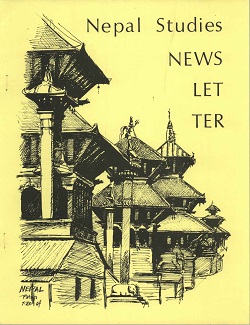Author Biography
Mabel D. Gergan is a graduate student in the Geography Department at the University of North Carolina at Chapel Hill. Her research interests are at the intersection of Science and Technology Studies, Youth Geographies and Political Ecology. Her dissertation research will explore the formation of political subjectivities among indigenous youth in the context of resistance to state-led hydropower development. Her mother belongs to the Lepcha tribe and, having been born in Sikkim, she has strong family ties in the region. Gergan is deeply committed to bringing the Himalayan region to the forefront of academic scholarship both in India and elsewhere.
Abstract
In the last decade the Indian Power Ministry began an aggressive campaign for hydropower development in its ten Himalayan states. Twenty-nine of these dams were commissioned for construction in the small Eastern Himalayan state of Sikkim. In June 2007 Dzongu a protected reserve of the indigenous Lepchas in North Sikkim became the center of controversy when reserve youth went on a hunger strike against seven dams planned within the reserve. Their protests garnered enough national and international attention to cancel four of the seven dams. However within the reserve there was very little support for the activists who were seen as educated, upper class youth, most of whom had studied and lived outside the reserve. In this article I narrow the focus on the Dzongu youth and demonstrate how contestations between State and indigenous groups often pry open profound contestations within these groups. In tracing the trajectory of the Dzongu activists after the protests I examine how they are redefining indigeneity, beyond and sometimes in conflict with former connotations. I argue that the anti-dam protests became a way for Dzongu youth to question state-led development agendas as well as elders and urban elite who spoke on behalf of the community. Building on literature in indigeneity and geographies of young people, this research draws on the authors M.A. research (2007-10), two pre-dissertation surveys (2011, 2012) and ongoing fieldwork. The Indian Himalayan region is home to several indigenous groups and is the site of intense geo-political anxiety given its proximity to China and Pakistan. I argue that an attention to young people’s political articulations can provide a valuable lens in analyzing the politics of nation building, the politics of difference and the shifting political subjectivities of marginalized groups.
Acknowledgements
The author is grateful to the National Science Foundation for funding her fieldwork research (2013-14) which contributed to the more recent interviews and material for this article. The author would like to thank the following people for their comments and suggestions on this material: Sara Smith, Pavithra Vasudevan, Mike Dimpfl, Autumn Thoyre, the Geography writing group at UNC-CH, Jenny Bentley and two anonymous reviewers. She is especially grateful to Gina Drew, Mark Turin and Sienna Craig for their helpful advice and endless patience. And most importantly I would like to thank all the young men and women of Dzongu who agreed to be interviewed and those who welcomed her into their homes and their lives.
Creative Commons License

This work is licensed under a Creative Commons Attribution 3.0 License.
Recommended Citation
Gergan, Mabel D.. 2014. Precarity and Possibility: On being Young and Indigenous in Sikkim, India. HIMALAYA 34(2).
Available at:
https://digitalcommons.macalester.edu/himalaya/vol34/iss2/10


